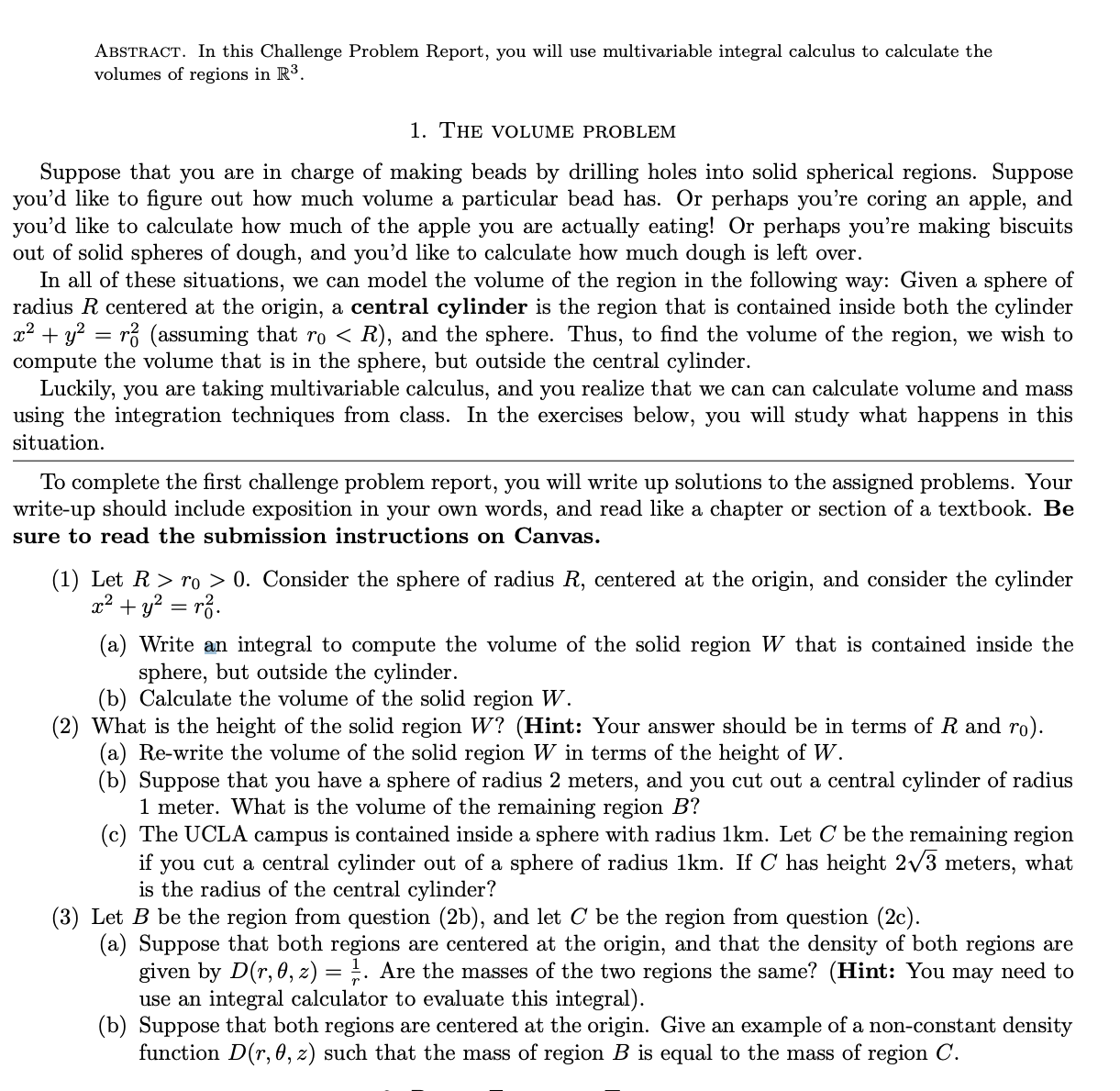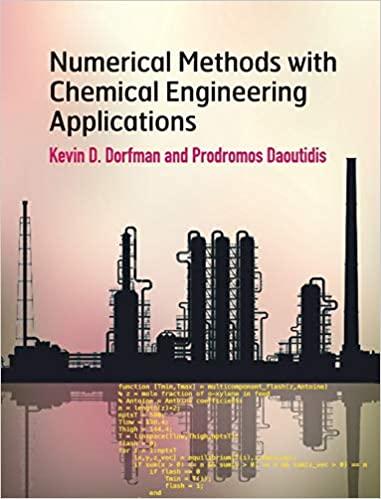Answered step by step
Verified Expert Solution
Question
1 Approved Answer
ABSTRACT. In this Challenge Problem Report, you will use multivariable integral calculus to calculate the volumes of regions in R. 1. THE VOLUME PROBLEM

ABSTRACT. In this Challenge Problem Report, you will use multivariable integral calculus to calculate the volumes of regions in R. 1. THE VOLUME PROBLEM Suppose that you are in charge of making beads by drilling holes into solid spherical regions. Suppose you'd like to figure out how much volume a particular bead has. Or perhaps you're coring an apple, and you'd like to calculate how much of the apple you are actually eating! Or perhaps you're making biscuits out of solid spheres of dough, and you'd like to calculate how much dough is left over. In all of these situations, we can model the volume of the region in the following way: Given a sphere of radius R centered at the origin, a central cylinder is the region that is contained inside both the cylinder x + y = r (assuming that ro < R), and the sphere. Thus, to find the volume of the region, we wish to compute the volume that is in the sphere, but outside the central cylinder. Luckily, you are taking multivariable calculus, and you realize that we can can calculate volume and mass using the integration techniques from class. In the exercises below, you will study what happens in this situation. To complete the first challenge problem report, you will write up solutions to the assigned problems. Your write-up should include exposition in your own words, and read like a chapter or section of a textbook. Be sure to read the submission instructions on Canvas. (1) Let R>ro > 0. Consider the sphere of radius R, centered at the origin, and consider the cylinder x + y = r. (a) Write an integral to compute the volume of the solid region W that is contained inside the sphere, but outside the cylinder. (b) Calculate the volume of the solid region W. (2) What is the height of the solid region W? (Hint: Your answer should be in terms of R and ro). (a) Re-write the volume of the solid region W in terms of the height of W. (b) Suppose that you have a sphere of radius 2 meters, and you cut out a central cylinder of radius 1 meter. What is the volume of the remaining region B? (c) The UCLA campus is contained inside a sphere with radius 1km. Let C be the remaining region if you cut a central cylinder out of a sphere of radius 1km. If C has height 23 meters, what is the radius of the central cylinder? (3) Let B be the region from question (2b), and let C be the region from question (2c). (a) Suppose that both regions are centered at the origin, and that the density of both regions are given by D(r, 0, z) = . Are the masses of the two regions the same? (Hint: You may need to use an integral calculator to evaluate this integral). (b) Suppose that both regions are centered at the origin. Give an example of a non-constant density function D(r, 0, z) such that the mass of region B is equal to the mass of region C.
Step by Step Solution
There are 3 Steps involved in it
Step: 1

Get Instant Access to Expert-Tailored Solutions
See step-by-step solutions with expert insights and AI powered tools for academic success
Step: 2

Step: 3

Ace Your Homework with AI
Get the answers you need in no time with our AI-driven, step-by-step assistance
Get Started


